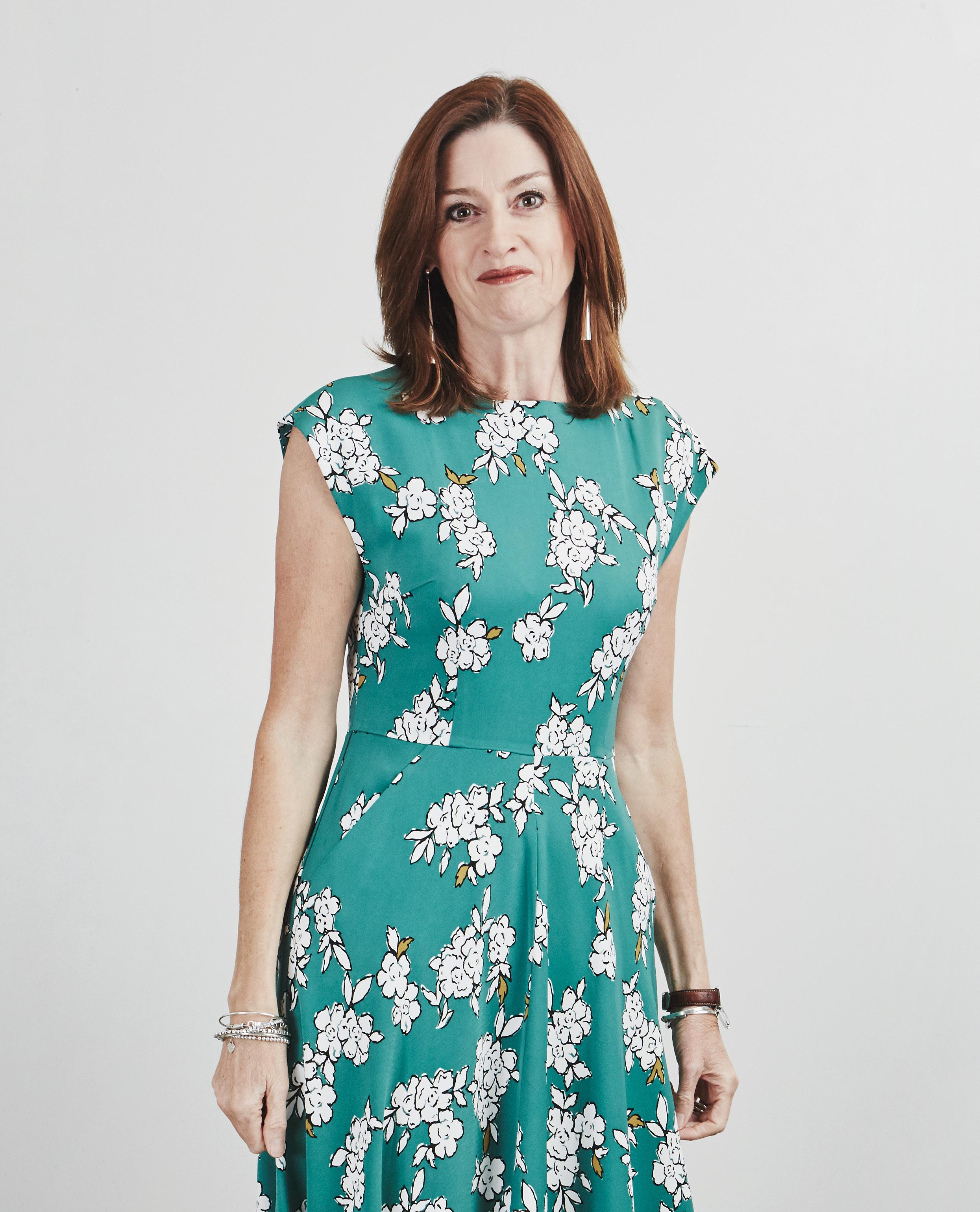
7 minute read
Amanda Berry OBE: Living the impossible dream
AMANDA BERRY
The British Academy of Film and Television Arts (BAFTA) is a world-leading Arts charity, famous for its award ceremonies that honour the best British and international contributions to film, games and television. The awards are the British equivalent of the Oscars. BAFTA also operates a year-round programme of events, workshops, scholarships and mentoring schemes in the UK, the US and Asia.
Advertisement
Amanda Berry OBE, Chief Executive of BAFTA, spoke at the King's20 Demo Day 2018 which celebrated the achievements of the ventures in our accelerator. Léa Rozencwajg, a Masters student in Arts & Cultural Management at King’s, met with Amanda beforehand to talk about the innovations she has introduced at BAFTA and what it takes to excel in the film, games and television industries.
t’s a very hot day in London, but Amanda is cool as can be. She’s in her office when I walk in, working away, but giving off an aura of positivity. This positivity, I am about to find out, is behind everything that she does and believes in, and has helped her navigate significant changes at BAFTA.
I
EARLY LIFE
Amanda grew up in a small town in North Yorkshire. She was a very sickly child, which meant that she missed a lot of school and so spent a lot of time watching television. Amanda mentions that going to the cinema was the ‘impossible dream’. She adored going, but the Zetland cinema, the only one in her home town, was old and full of dust. This meant that Amanda had an asthma attack every time she went. Despite this, her passion for film remained alight and the cinema became a magical place for her. This passion never dissipated and it ultimately led to Amanda joining BAFTA in 1998 as Director of Development and Events, becoming Chief Executive two years later.
TRANSFORMING BAFTA
When Amanda joined BAFTA, it was in a difficult financial position and only had a small staff team. ‘They worked extremely hard but didn’t dare to dream because finances were so tight. Yet there was this incredible brand which we all believed in,’ reflects Amanda. She went on to transform BAFTA by bringing in a Chief Operating Officer to help manage the business, getting greater support for the organisation from industry, and changing how it operates. A pivotal change was moving the Film Awards in the global awards calendar. ‘If there was one change that altered people’s perception of who we were as an organisation, it was moving the Film Awards before the Oscars. The Awards being between the Golden Globes in January and the Oscars in March meant that we would be relevant to both the industry and the public.’ Amanda admits that it was a massive risk at first. This was because films opened much later in the UK compared to the US and she had to work hard to ensure BAFTA members were able to see the films and vote. Members were recognising films that the public had not yet heard of, so the move initially led to a drop in the television audience.
Nevertheless, Amanda asserts: ‘Long term, it was absolutely worth it because as soon as we moved the Awards then internationally we became relevant, but we had to be brave!’
Although she realises this may not apply to all industries, Amanda feels that being a woman has helped her be entrepreneurial within the organisation: ‘I feel as a woman, I’m able to say: “I have a gut instinct we can make work”, and I’m not sure a man can say the same thing. I am a dreamer, and often I don’t have the business plan to get me to where I want to get to but I’ve just got this idea that we can make it work. I’ve been allowed to be me, and I think that allows me to do the best job at BAFTA and enables me to not be afraid to take the risks necessary to keep innovating.’ It clearly has paid off: when Amanda joined BAFTA, it had 15 staff members; today there are over 100.
HOW TO BE ENTREPRENEURIAL IN ORGANISATIONS
Amanda offers several tips. These include staying tuned to changes inside and outside the sector you are in and continuously asking how the organisation is relevant. Amanda believes it also means playing to your individual strengths and not ignoring these and bringing in people with the skills and aptitude to fill in the gaps that you are missing. She also cautions that while it is important to learn from mistakes and failures, not to dwell on them: ‘I am one of those annoying people for whom the glass is always overflowing with positivity.’
GETTING INVOLVED
With new technologies and streaming platforms such as Netflix and Prime Video, Amanda feels that there are new and exciting opportunities for involvement. ‘The industry needs to be open to all and if it is not made up of people from all sorts of backgrounds, then we won’t be telling the world’s stories, and it is absolutely crucial that we do!
‘The awareness of careers is becoming greater,’

adds Amanda, ‘it is important to keep pushing that. Whatever your skills, there is a job for you in film, games or television: a carpenter can make sets. An accountant can be a production accountant! It’s not all about what happens in front of the camera, there is so much more to it!
‘My way in was through an internship, that is why I am especially keen on the six months’ paid internships offered by BAFTA across all departments. But more than finding a way in, it is about finding out what you want to do.’
Amanda recommends doing the careers quiz on the BAFTA Guru website to help guide you (guru. bafta.org/careers-quiz).
‘The great thing about the media industry is that it needs all sorts of personalities, backgrounds and influences. If I could come from a small town with very few qualifications and manage to find my way through, it must be possible for others too!’
Although Amanda understands it can be hard to get into the media industry, she emphasises her trust in taking steps backwards and occasionally sideways to get the necessary experience and eventually the dream job.
HOW TO EXCEL IN THE INDUSTRY
I asked Amanda what she felt were the biggest differences between when she entered the industry, and today. She describes how you used to have to choose between working in film, games or television and how you can now work across them: ‘Today, what has changed dramatically is that the boundaries between the three have merged and the choice is not compulsory. A wonderful example is Peter Jackson, the film director, who works across film, games and television.’ Amanda offers her insights on how to make it in the industry: ‘Making it in the industry is about being brave (you can do it!)! It’s about going to events, reading content online, and finding likeminded people because it’s important to find people who share your dreams and whose

skills complement yours. A big must is to do your research and immerse yourself in what it is you want to do!’
Amanda also underlines that all her previous jobs, no matter how unrelated, have contributed to what she does today, so she advises to: ‘Expose yourself to opportunities and take the opportunities you are being offered!’
THE BAFTA OF THE FUTURE
Will there be more award ceremonies? Amanda laughs and asserts: ‘We won’t be adding endless new award ceremonies; what we will do is work hard to make sure that the ones we have stay relevant to the ever-evolving industry.’
Amanda wants BAFTA to become increasingly global and plans for it to continue to develop new talent opportunities. She also hopes to build on BAFTA’s creative and cultural exchange activities, which the organisation has already started in China. Amanda also wants to continue to innovate within the organisation, as she has continued to do throughout her time there. For her, it always comes back to: ‘Believe and achieve, doubt and live without.’
WANT TO KNOW MORE?
Register with us to find out about other entrepreneurs and innovators speaking at King’s: bit.ly/EntEngage
BAFTA Guru is a hub for inspirational career advice in film, games and television: guru.bafta.org










